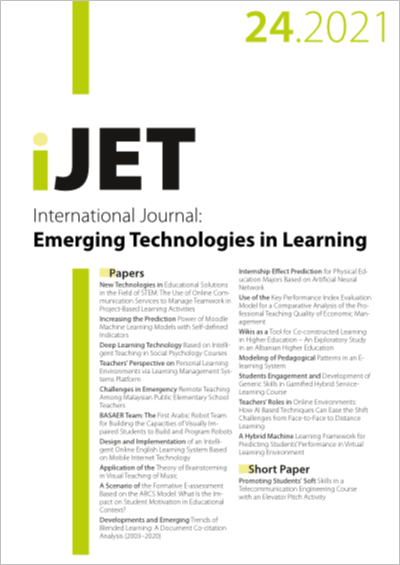A Hybrid Machine Learning Framework for Predicting Students’ Performance in Virtual Learning Environment
DOI:
https://doi.org/10.3991/ijet.v16i24.26151Keywords:
machine learning, weka, predictive model, ensemble, student performance prediction, classification algorithm, virtual learningAbstract
Virtual Learning Environments (VLE), such as Moodle and Blackboard, store vast data to help identify students' performance and engagement. As a result, researchers have been focusing their efforts on assisting educational institutions in providing machine learning models to predict at-risk students and improve their performance. However, it requires an efficient approach to construct a model that can ultimately provide accurate predictions. Consequently, this study proposes a hybrid machine learning framework to predict students' performance using eight classification algorithms and three ensemble methods (Bagging, Boosting, Voting) to determine the best-performing predictive model. In addition, this study used filter-based and wrapper-based feature selection techniques to select the best features of the dataset related to students' performance. The obtained results reveal that the ensemble methods recorded higher predictive accuracy when compared to single classifiers. Furthermore, the accuracy of the models improved due to the feature selection techniques utilized in this study.
Downloads
Published
2021-12-21
How to Cite
Evangelista, E. (2021). A Hybrid Machine Learning Framework for Predicting Students’ Performance in Virtual Learning Environment. International Journal of Emerging Technologies in Learning (iJET), 16(24), pp. 255–272. https://doi.org/10.3991/ijet.v16i24.26151
Issue
Section
Papers
License
Copyright (c) 2021 Edmund Evangelista

This work is licensed under a Creative Commons Attribution 4.0 International License.



